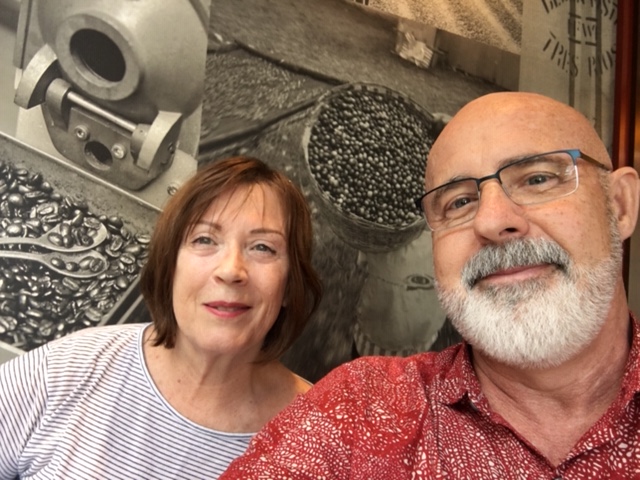Wallace Robinson is leader of Advance Care Planning (ACP) at Providence Health Care and Karen Sanderson is a patient-partner volunteer here. Today they share reflections on the importance of planning for the end of life.
For me and for Karen Sanderson, a committed patient-partner at Providence, talking about our personal experiences with ACP – and how to promote more of these planning conversations in the community and within health care – has become second nature to us.
And while Karen and I may be on the far end of the spectrum when it comes to our comfort with ACP – a process where a person reflects on and communicates their values, beliefs, goals and preferences to best prepare for their future medical care – I believe we are witnessing a societal shift in the acceptability of advance care planning conversations. This shift is being influenced by a number of factors – aging baby-boomers, for one, wanting to have a say in how they live the final years of their lives; Medical Assistance in Dying (MAiD), for another, is causing people to think about their personal and moral views on that topic and then to think about how they would prefer their future to look as they get older, sometimes sicker and eventually approaching the end of their lives.
Another factor effecting our desire to engage in ACP conversations is our personal experience – positive or otherwise – with family members or friends who have become sick and faced difficult choices. Karen is someone whose personal experience has prompted her passion in promoting ACP. Her story – the themes of which are not uncommon – illustrates the need for us within health care to be intentional about engaging with patients about their story, and their goals and fears for the future.
My mom was 87 and had a wonderful life: 5 kids, 10 grandkids, 2 great grandkids and a husband of 64 years, all who loved and adored her.
In her words, she was grateful for her life and when her time came she wanted “NO HEROICS!” However, when her time did come, Dad couldn’t let go and she was resuscitated. She lived another four months of poor quality. Dad promised she would not go back to hospital.
When she was actively dying, the Palliative Home Care team supported us. Dad was in denial and believed opiates would hasten her death, so comfort care was withheld. Her nurses felt the only way they could implement proper pain management was to admit her to the Palliative Care Unit (PCU) and wanted my support to convince Dad. And I couldn’t do it.
If only Mom had simply written an Advance Care Plan that said “I want a natural death,” we could have used that to gently transition Dad to accepting the inevitable. If only he hadn’t promised she could die at home, we ALL could have benefitted from the encompassing quality of care and expertise of a PCU.
In her final days, instead of being surrounded by a loving family, sad but supporting each other, there was tension and discord. Her response to this was her refusal to open her eyes. It would have made her beyond happy to see us together and harmonious, but we failed in giving that last gift to the Mother we all loved.
As hard as it was to watch Mom suffer, it was equally as hard to watch my Dad’s despondency and guilt over not honouring Mom’s wishes.
When I first heard about ACP I was excited for a way to stay in control of the quality of my life at the end. Now I am currently a patient partner to help provide a patient’s perspective on ACP in a hospital setting and on a team that offers free public ACP information sessions, where I open my sessions with my mom’s story to connect with the participants and create an environment where they might feel safe to share their stories around death and dying.
Karen’s story about her mother is a reminder of the importance of advance care planning. It is also a reminder that wishes are sometimes best expressed in writing, that losing a loved one is painful and complicated, and it can be difficult to ensure that wishes are carried out.
If you’re interested in starting your own ACP conversation or would like to find out more, please visit the national Advance Care Planning site https://www.advancecareplanning.ca/ or email ACP@providencehealth.bc.ca.





